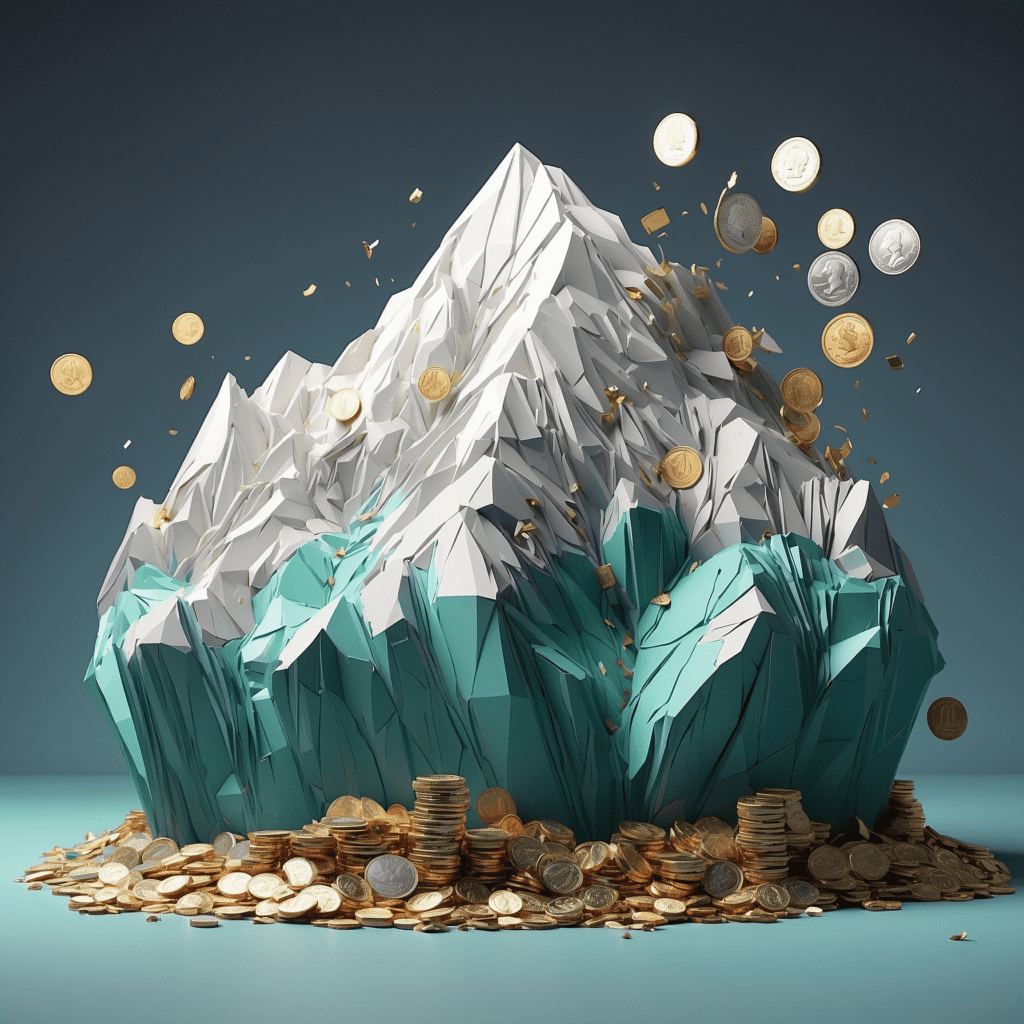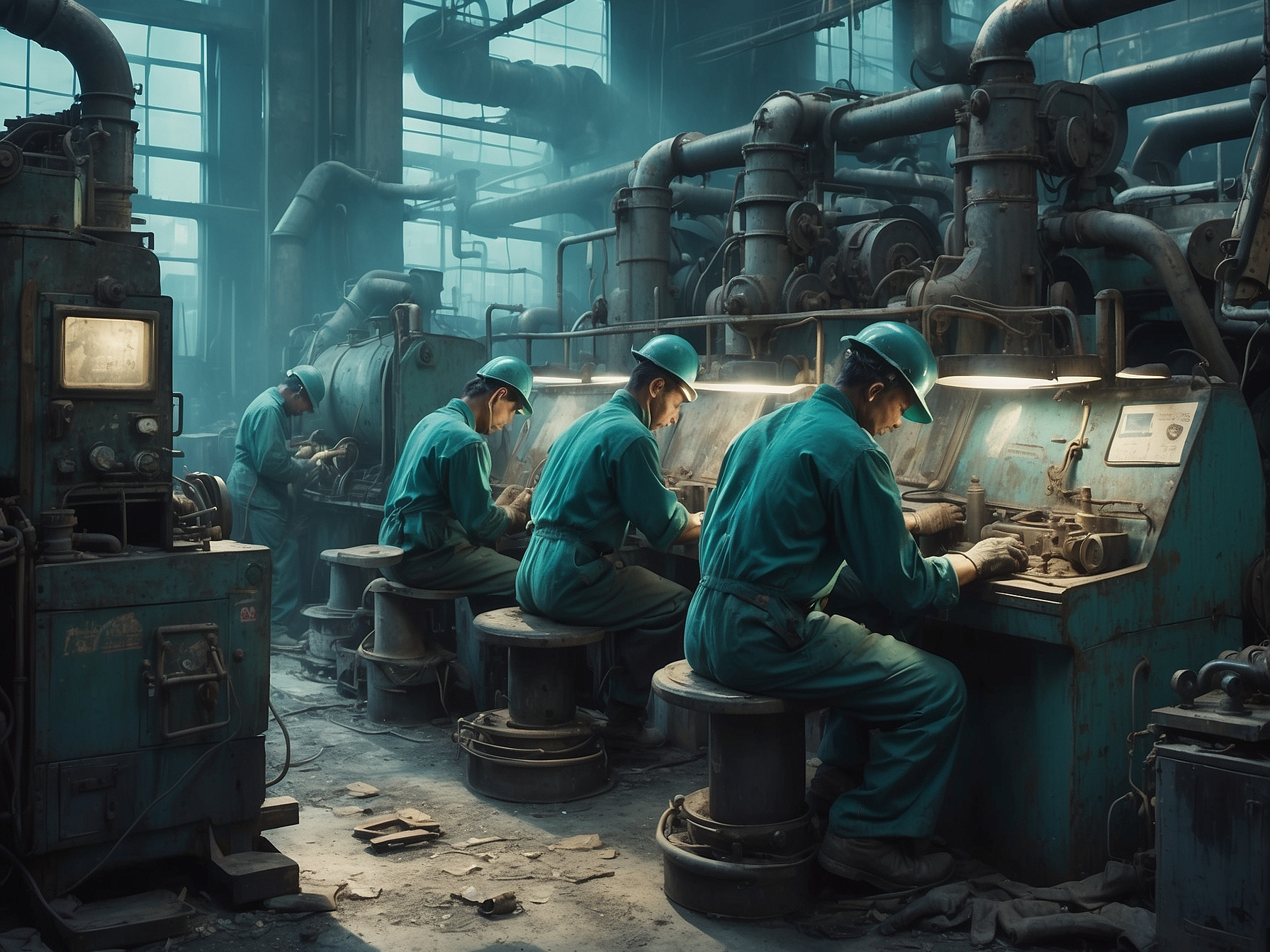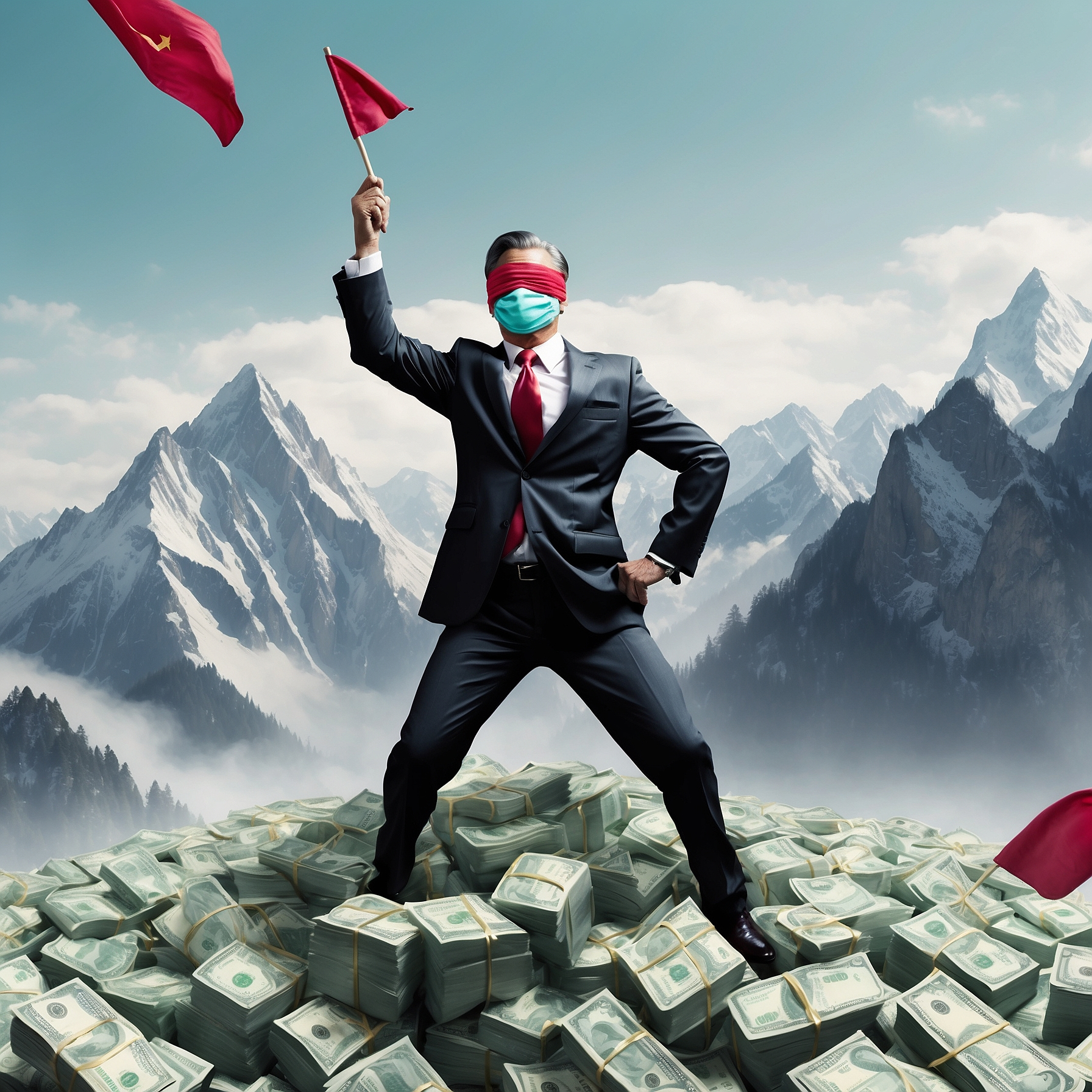Ah, the free market economy—where businesses roam free like wild horses and the government’s mostly just a spectator munching on popcorn. It’s like a massive flea market but on steroids. Sure, the free market brings along some pretty neat advantages, but let’s not kid ourselves—it also has its fair share of pitfalls that can make even the savviest entrepreneur cringe. Before we dive into the juicy bits of the downsides, let’s take a moment to figure out what this whole free market economy jazz is all about.
See also: Free Enterprise vs. Capitalism: Spot the Difference Without a Cheat Sheet

What Is a Free Market Economy, Really?
Picture this: a bustling marketplace where everyone is free to buy and sell whatever they fancy, and the government’s role is about as significant as a cameo in a low-budget movie. That’s a free market economy for you! Unlike a controlled economy, where Uncle Sam has his fingers in every pie, the free market lets individuals call the shots. Supply and demand are the reigning champions here, and voluntary exchanges between producers and consumers keep the wheels turning.
In this setup, most properties and businesses are owned by—you guessed it—private individuals. The government’s got a laissez-faire attitude (that’s fancy talk for “let it be”), meaning they stay out of the way unless things get really messy. The free market vibes well with capitalism, where the name of the game is profit. If there’s a buck to be made and people want it, someone will sell it—even if it’s a pet rock or dehydrated water.
See also: Free Market vs. Regulated Market: The Showdown You Didn’t Know You Needed
Disadvantages of a Free Market Economy
- Risk of market failure
- Poor working conditions
- Disregard for environmental safety
- Reduced social safety net programs
- Corruption may become prevalent
- Limited product choices
- Inequitable distribution of wealth and opportunities
- Promotes the idea of monopolization
- Encourages consumerism
- An increased barrier to entry
- Questionable priorities
- Exploitation of consumers
Risk of Market Failure
First up on our list of party poopers is the ever-looming risk of market failure. Think of the free market as a high-stakes poker game—when everyone’s winning, it’s all smiles and high-fives. But one wrong move, and the whole table flips. Market failures happen when the market spins out of control, leading to economic crises that make your head spin faster than a merry-go-round.
Why does this happen? Well, when folks get a tad too greedy chasing quick profits, things can go south quicker than you can say “stock market crash.” Remember the Great Depression of the 1930s? Or the not-so-distant 2007-2008 Global Financial Crisis? Yep, those were courtesy of the free market going haywire. People lost jobs, homes, savings—you name it. As long as there’s a hunger for short-term gains, the risk of market failure will hang over the free market like a dark cloud.
Poor Working Conditions
Next on the hit list: poor working conditions. In the free market jungle, companies are prowling for profits like lions on a hunt. That often means workers get the short end of the stick. Think longer hours, lower pay, and benefits that are as rare as a unicorn sighting.
When the economy takes a nosedive, guess whose salaries get the first haircut? Yep, the employees. Companies might offer you the “choice” of accepting a pay cut or showing you the door. Overtime pay? Health insurance? Pension funds? Companies might treat these like optional toppings on a pizza—not essential, unless it serves their bottom line.
And let’s not forget safety. In the race to cut costs, proper protective gear and safe working environments can become afterthoughts. It’s like being told to swim with sharks but “on a budget.”
Oh, and automation? That’s a whole other can of worms. With technology advancing faster than a caffeinated cheetah, robots are poised to take over jobs in industries from manufacturing to fast food. So unless you’re ready to buddy up with a robot coworker—or be replaced by one—this is a real concern.

Disregard for Environmental Safety
Environmental safety? In a free market economy, that’s often about as popular as a skunk at a garden party. With no strict regulations keeping companies in check, cutting corners becomes a tempting way to slash costs and boost profits. Unfortunately, Mother Nature usually pays the price.
Remember the Deepwater Horizon oil spill in 2010? In a bid to save a buck, safety measures were overlooked, leading to one of the worst environmental disasters in U.S. history. Over 4 million barrels of oil gushed into the Gulf of Mexico over 87 days. Not exactly a highlight reel for the free market.
When profits are king, things like clean air and water can get tossed aside like yesterday’s news. Companies might skimp on waste disposal or opt for cheaper, more polluting technologies because, hey, it’s cheaper.
Reduced Social Safety Net Programs
In a free market economy, if you’re not actively contributing to the market, you might feel as invisible as a ghost at noon. Social safety net programs—think welfare, unemployment benefits, or disability support—are often scant or nonexistent. It’s the economic equivalent of “survival of the fittest,” and if you can’t keep up, tough luck.
This lack of support hits vulnerable populations the hardest: the elderly, disabled, and children. Unless they have family members with deep pockets willing to lend a hand, they’re often left without the help they need. Competition for what little aid is available is fierce, turning it into a game where only a few win, and many lose.
Corruption May Become Prevalent
When the referee is off-duty, players might start bending the rules. In a free market with minimal oversight, corruption can spread like wildfire. Companies vying for top dog status might engage in shady practices—bribing officials, manipulating markets, or cooking the books—to get ahead.
Without regulatory bodies breathing down their necks, some businesses may see unethical behavior as just another strategy. It’s like playing Monopoly but slipping yourself extra cash when no one’s watching. Sure, it might help you win, but it ruins the game for everyone else.
Limited Product Choices
You’d think a free market would be a buffet of endless options, right? Surprise! It’s not always the case. Companies focus on what sells and, more importantly, what brings in the highest profits. If a product isn’t raking in the dough, it’s likely to get the axe, leaving consumers with fewer choices.
Take niche products or services that serve a small segment of the population. If they’re not profitable enough, companies might stop offering them altogether. It’s like going to an ice cream shop that only sells vanilla because it’s the best-seller. Great if you love vanilla—not so much if you’re craving mint chocolate chip.
In communities with lower disposable incomes, this problem is magnified. Businesses may avoid these areas altogether, limiting access to goods and services that others take for granted. So much for the land of plenty!
Inequitable Distribution of Wealth and Opportunities
If life’s a game, then the free market’s rulebook is tilted in favor of those who start on third base. Wealth and opportunities often concentrate among those who are already well-off. Born into a wealthy family? Congratulations, you’ve got a head start with better education, connections, and maybe a trust fund to boot.
For everyone else, climbing the economic ladder can feel like scaling Mount Everest without oxygen. While the free market doesn’t actively discriminate, it doesn’t exactly level the playing field either. The rich get richer, and the others… well, they work harder for smaller gains. It’s like running a marathon where some people get a bicycle.
Promotes the Idea of Monopolization
The free market loves competition—until someone wins big enough to buy out or push out everyone else. When a company becomes a behemoth in its industry, it can start acting like a monopoly, dictating prices and stifling innovation. Think of it as the playground bully who takes all the toys and decides the rules of the game.
These corporate giants have the resources to outspend and outmaneuver smaller competitors. They can absorb market shocks that would sink smaller firms and invest in research and development to stay ahead. While that’s great for them, it’s not so hot for consumers, who may face higher prices and fewer choices.
And if one of these giants falters? The ripple effect can shake the entire economy, leading to job losses and financial instability. It’s like knocking over the biggest domino and watching the rest tumble down.

Encourages Consumerism
In a free market economy, more is more. Consumerism isn’t just encouraged; it’s practically a civic duty. The system thrives on people buying goods and services at an ever-increasing rate. It’s like being on a treadmill that keeps speeding up—you’ve got to keep moving just to stay in place.
For those with hefty wallets, this isn’t much of a problem. But for folks living paycheck to paycheck, the pressure to spend can lead to debt and financial stress. It’s a cycle that’s tough to break: work hard to earn money, spend that money on goods and services you might not need, rinse and repeat.
An Increased Barrier to Entry
Got a brilliant business idea that’ll change the world? In a free market, turning that idea into reality might be harder than getting a cat to take a bath. Established companies have the advantage of resources, brand recognition, and economies of scale. Newbies entering the market face steep challenges—funding, marketing, production—you name it.
Investors and lenders are often reluctant to roll the dice on unproven ventures, preferring to stick with the tried-and-true. It’s like trying to join an exclusive club where the bouncers don’t even acknowledge your existence. This barrier to entry stifles innovation and keeps the market dominated by a few big players.
Questionable Priorities
In the quest for profits, companies might prioritize products and services that aren’t exactly enriching society. Why invest in affordable healthcare or education when luxury yachts and designer handbags offer better returns? It’s capitalism’s version of choosing dessert over vegetables—not great for long-term health.
Investors flock to industries with quick payouts, like entertainment or high-end consumer goods, leaving essential sectors like infrastructure or public services underfunded. It’s like building a mansion without bothering to install plumbing. Sure, it looks impressive, but it doesn’t meet fundamental needs.
Exploitation of Consumers
Last but definitely not least is the exploitation of consumers. When demand spikes—say, during holidays or emergencies—companies might hike prices because they know people will pay. It’s the classic supply-and-demand squeeze, and it can leave your wallet lighter than a helium balloon.
Some businesses might even create artificial scarcity to drive up prices. Remember when certain toys or gadgets became “must-haves” overnight? Limited editions, pre-orders, and exclusive releases are strategies that can pressure consumers into paying premium prices.
So, What’s the Bottom Line?
Every economic system has its quirks and pitfalls, and the free market economy is no exception. While it champions innovation and individual freedom, it also opens the door to issues like inequality, environmental harm, and market instability. The very features that make it appealing—minimal government intervention and profit-driven motives—can also lead to its biggest problems.
In reality, most countries operate with a mix of free market principles and government regulations to keep things from going off the rails. It’s like adding a safety net under a tightrope walker—you still get the thrill, but with less risk of a catastrophic fall.
If you’re an entrepreneur or just someone trying to navigate this complex economic landscape, it’s crucial to be aware of these disadvantages. Knowledge is power, after all. Being informed helps you make better decisions, whether you’re launching a startup or simply deciding where to shop.
Key Takeaways
- The free market economy allows for minimal government intervention, promoting individual freedom and profit-driven businesses.
- Market failures can occur due to unchecked greed and lack of regulation, leading to economic crises.
- Workers may face poor conditions, low pay, and job insecurity due to companies prioritizing profits over people.
- Environmental safety often takes a backseat, resulting in pollution and ecological disasters.
- Social safety nets are limited, leaving vulnerable populations without adequate support.
- Corruption can become widespread in the absence of regulatory oversight.
- Consumer choices may be limited as companies focus on profitable products, neglecting less lucrative ones.
- Wealth and opportunities are often unevenly distributed, favoring those already in advantageous positions.
- Monopolies can form, reducing competition and potentially harming consumers.
- Consumerism is heavily promoted, which can lead to debt and financial stress for individuals.
- High barriers to entry make it challenging for new businesses to compete with established firms.
- Companies may prioritize profits over societal needs, leading to questionable production choices.
- Consumers may be exploited through price hikes and artificial scarcity.
FAQs
What are the disadvantages of a free market economy?
The common disadvantages include the risk of market failure, poor working conditions, disregard for environmental safety, reduced social safety net programs, prevalence of corruption, limited product choices, inequitable distribution of wealth and opportunities, promotion of monopolies, encouragement of consumerism, increased barriers to entry, questionable corporate priorities, and exploitation of consumers.
